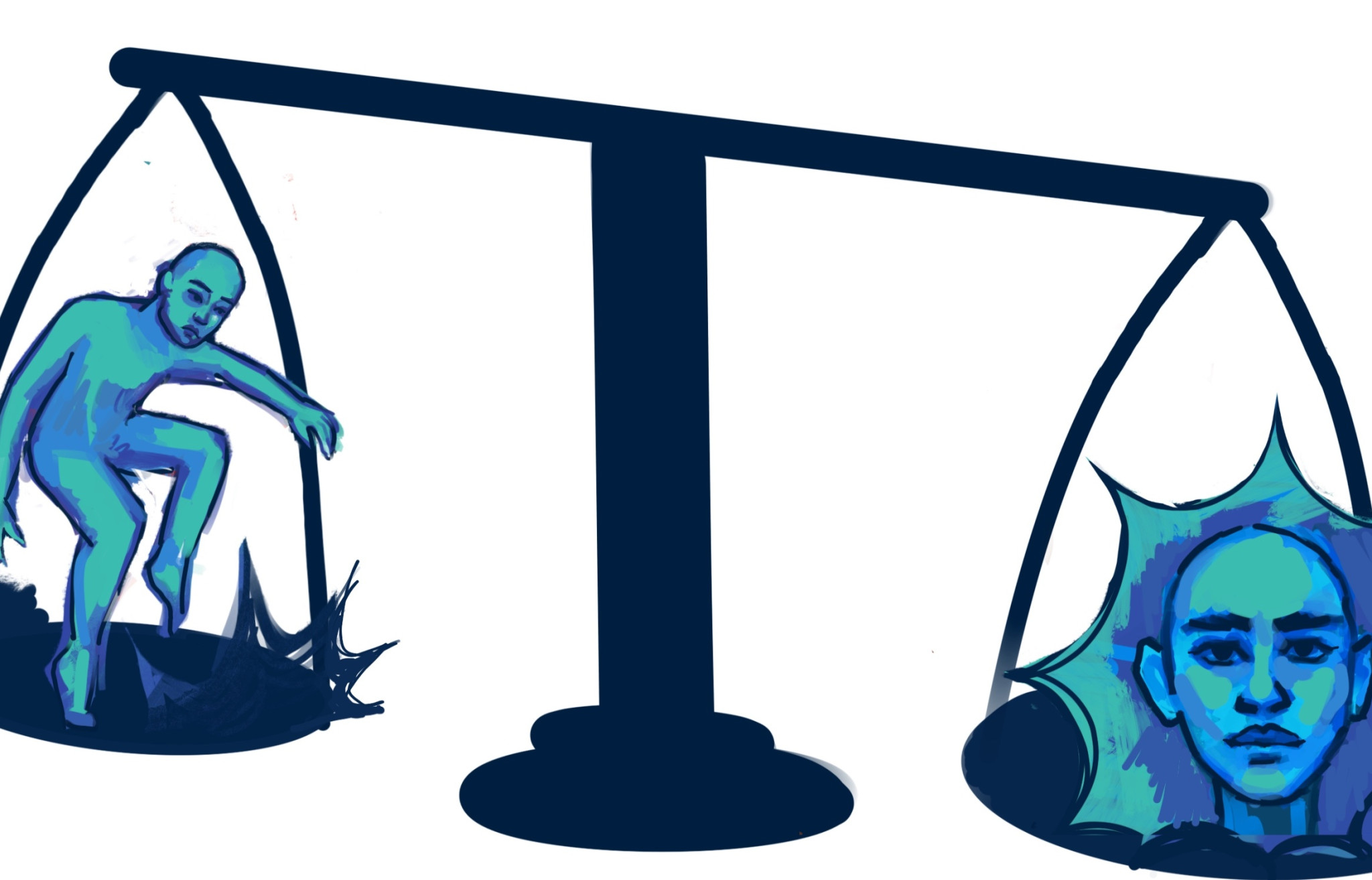As a result of its mostly left-leaning population, Berkeley High School’s community is surrounded by what is called the “Berkeley Bubble,” a reference to the percieved lack of non-liberal opinions voiced in its political spheres. According to Alameda County’s official website, just under 75 percent of the county’s population (which includes Berkeley residents) voted for the Democratic candidate in the 2024 election. However, similar ways of voting doesn’t mean that everyone thinks the same. There are many topics that, while important to discuss, can sow division between students.
John Tobias, a BHS history teacher, explained that Berkeley Unified School District generally gives teachers the freedom to teach what they want to teach, although the district does provide them with guidelines on handling controversial topics.
According to its website, BUSD aims to provide a learning environment that upholds free speech, inclusion, and diversity and emphasizes the use of critical thinking skills. When it comes to teaching controversial issues, they write that the goal of such a lesson should be to “help students learn how to gather and organize pertinent facts, discriminate between fact and fiction, draw intelligent conclusions, build empathy and respect the opinions of others.”
Jasmina Viteskic, BUSD’s Title IX Coordinator and Compliance Officer, explained that this policy is meant to create a safe environment in which students can be exposed to others’ opinions. “The school board ... actually encourages teachers to teach controversial issues because we’re trying to prepare you to go into the world where not everything is going to be the same like it is in Berkeley,” Viteskic said.
Accomplishing this in the classroom requires preparation and communication. “Building trust and setting the parameters as a teacher for what we are discussing and what is not allowed is really important ... nobody should have to defend their humanity before they can learn about the Monroe Doctrine,” Tobias said. Before introducing a contentious topic, Tobias starts by encouraging lighter debates, giving students room to make mistakes and practice sharing their opinions while using appropriate language.
Menaka Gentle, a former ninth grade Ethnic Studies teacher, added that it’s important to consider the impact of teaching every opinion when handling difficult topics. When it comes to movements like Black Lives Matter, for example, she said that if she “were to teach about All Lives Matter, (she) would worry about ... students and how they feel hearing these perspectives that do so much harm.”
Gentle’s approach also depends on the topic. “I think about the environment that I’m in and how open to this particular perspective (BHS) is. A controversial topic is only an issue if it creates harm in a classroom. So if we are all under the impression that racism exists and that racism is bad, then it's an easy line to draw. But when we get into dicier situations where there are lots of different people with different opinions, then I need to make sure to have multiple perspectives and keep my balance,” Gentle said.
Josephine Cooper, a BHS junior, has had no issues with the way that controversial topics have been discussed in her classes, although she acknowledges that the left-leaning atmosphere of Berkeley contributed to that. “I have been happy with it, but that might just be because ... very few people (in Berkeley) get offended when people are talking (from a more) liberal standpoint,” Cooper said.
However, there has been a recent push against the way BUSD handles controversy, especially in regards to current global conflicts. Although the official district policy gives teachers “the option of responsibly sharing their own (views),” some community members feel that a firmer position is required when it comes to discussing topics that may cause students to feel uncomfortable or unsafe.
Mark Brilliant, a University of California Berkeley professor and BUSD parent, expressed concerns about teachers sharing their personal political views with their students, adding that “broadcasting one’s politics (as a teacher) ... is using the classroom as a bully pulpit to bludgeon one’s captive audience.”
Another BUSD parent, who wished to remain anonymous to protect their kids’ privacy, shared a similar opinion to Brilliant’s. They believe that in order to properly teach a controversial topic, teachers should “keep (their) personal bias out of the classroom.”
“When the teacher (is) putting their message around their classroom ... that is not teaching our kids critical thinking, that’s called indoctrination,” the parent said.
Viteskic explained that indoctrination should never be the goal when teachers are sharing their opinions, but they’re free to say what they believe. “(Teachers are) also humans, so their opinions are going to come out ... they can talk about (their beliefs), they just have to be very careful around how they do it ... they have to give you all of the facts,” Viteskic said.
Marielle Bled, a BHS junior, had a more positive experience when it came to how a controversial topic was taught. “I felt like there were both views shown so I could be satisfied with how I perceived the situation ... (We need to) tell both sides of the story, and not just what the majority of people think,” Bled said.
“You want to have all the children across the nation get views that are different from whatever is in their household, so that you can have a unified, educated group of people,” Viteskic said, “That's the whole purpose of public education, right?”
Despite the difficulties around teaching controversial topics, BUSD and its employees are understanding of its importance in building critical thinking skills, and committed to helping students learn. “It’s important to listen to your students first ... when students want to learn about a topic, I think that we need to have the courage to teach them those topics,” Gentle said.





